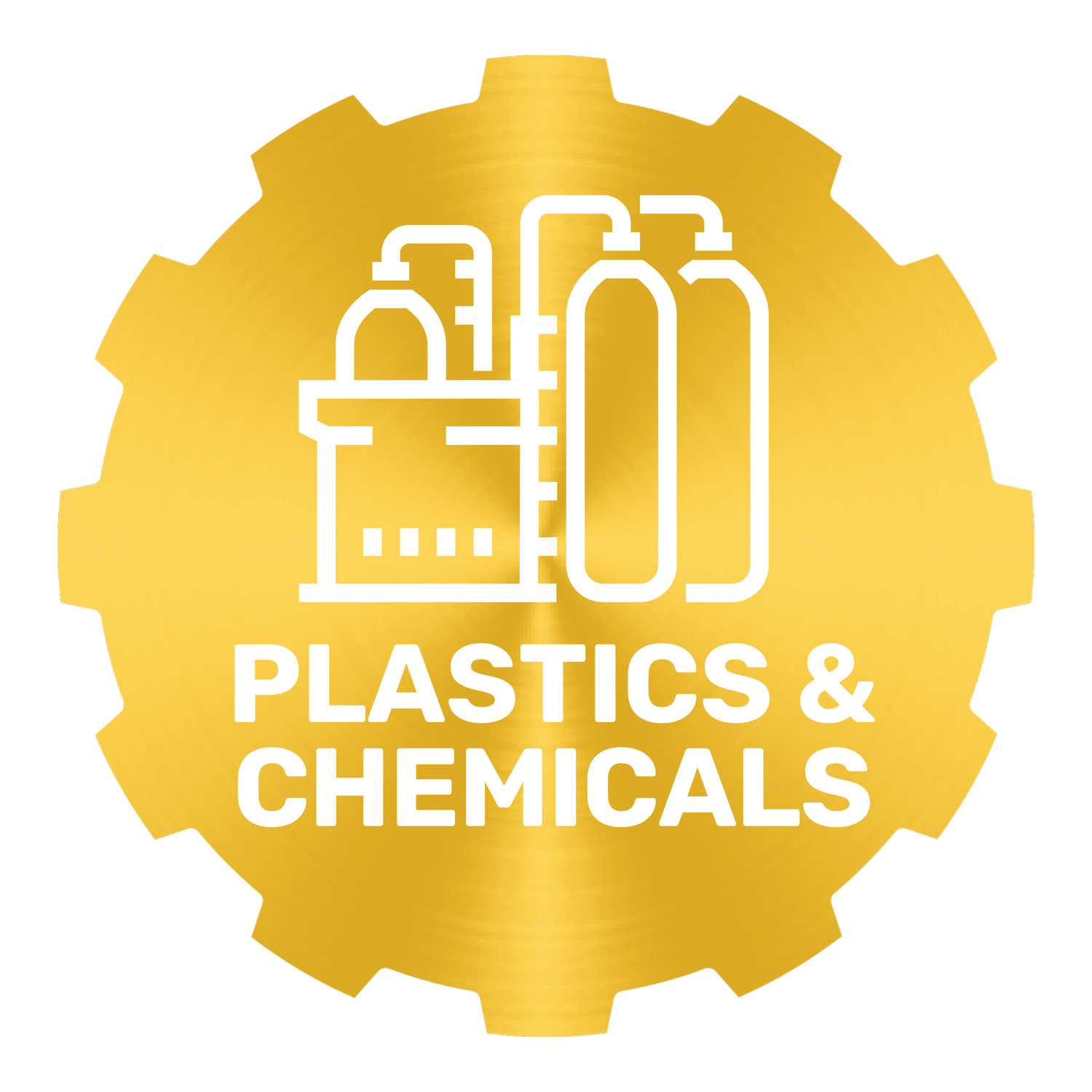Precision Machine & Manufacturing
Frequently Asked Questions

The purpose of this site is to answer the common questions we get every day here at Precision Machine & Manufacturing about the applications and industries we serve. Whether its Cement, BioMass, Metals & Minerals, Food & Agriculture, Pulp & Paper, or Coal Fired Power Generation, Precision Machine & Manufacturing has seen it all.

Industry-specific material handling solutions for the most difficult material handling applications. Choose your industry below:
Frequently Asked Questions
What is a rotary valve?
A rotary valve is essentially a metering airlock that is specifically made to handle abrasive and/or corrosive material types that have powdery characteristics and contain a low moisture content. Rotary Valves are not for materials that require shearing prior to flowing through the airlock.
Not all Rotary Valves are considered equal! When it comes to Precision Machine & Manufacturing’s Rotary Valve, harsh and abrasive material types can be managed with ease.
Materials such as sodium carbonate, talc, and fly ash, which have traditionally been very difficult to handle, can now be easily managed with Precision’s heavy-duty rotary valve. In addition to material handling systems, many dust collection systems utilize a rotary valve at the heart of the system. Precision’s version of a Rotary Valve maximizes the airlock functionality due to it being 100% machined, which allows the tightest overall tolerances to be achieved. Modular in form with replaceable wear items, Precision’s rotary valve will continue to offer a return on investment for many years to come.
Engineered for the harshest material handling environments, Precision rotary valves are made from special domestically sourced 500+ Brinell, abrasion resistant steel alloy that is surface treated with additional abrasion-resistant qualities to maximizes component life. This ensures your material handling operation is obtaining the greatest return on investment possible and does not experience costly unscheduled downtime. At the core of a rotary valve is a precisely machined rotor that turns by way of a gearmotor within a “barrel.” Wear plates and end bells make up the remaining components. Lastly, Precision Machine & Manufacturing’s Rotary Valve is 100% rebuildable, which further sets it apart from the competition.
What is a Rotary Feeder?
Within most industrial manufacturing environments, there are any number of material types moving throughout the plant. Some materials are chemicals, others are organic, whereas others are liquified. The key to creating a superior material handling system is choosing the right tool for the job! Putting the wrong component in place can ultimately be the cause for costly unscheduled downtime! Rotary valves are oftentimes referred to as airlocks or possibly even as a rotary feeder. However, there are significant differences between a rotary feeder and a rotary valve. However, BOTH of which are considered airlocks.
A rotary feeder is a metering airlock that is specifically made for organic materials, such as wood, pulp & paper, chips, wood pellets, sawdust, alternative fuels, and biomass materials. In addition, rotary feeders are perfect for material handling applications involving rubber, or alternative fuels such as carpet, roofing tiles, or food waste. At the core of a rotary feeder is hardened tool steel knife, a precisely machined rotor that turns by way of a gear motor within a “barrel.” Rotary feeders are primarily used in applications where the material being conveyed consists of varying sizes and dimensions and is needs to be cut prior to entering the material handling system. To accomplish this task, a hardened tool steel knife is fixed near the inlet of the feeder and precisely placed to ensure that only consistently sized materials are allowed to enter the delivery system. In addition, to metering the correctly sized materials, a rotary feeder also acts as an airlock, where it keeps both the upper and lower environments separated. This airlock functionality ensures maximum throughput and keeps the material flowing in the right direction. Precision Machine & Manufacturing’s rotary feeders are the preferred airlock for the Biomass power production, Wood processing and Pulp & Paper industries.
What is an Airlock?
In simple terms, an Airlock keeps two material handling environments separated. If the upper environment is a gravity fed system and the lower environment is fed by an air injection system, the airlock ensures the material is always traveling in its intended direction. Without an airlock in place, the lower environment will negatively interact with the upper environment and result in the material being pushed back upstream, which would decrease throughput and create several production problems. Airlocks are commonplace in material handling systems where two environments need to be separated.
What is Precision Manufacturing?
For us here at Precision Machine & Manufacturing, Precision Manufacturing is simply about manufacturing material handling components from the most durable, abrasion resistant alloys and doing so right here in the United States of America. Precision Manufacturing is about being “precise” in everything we do, from our customer interactions to the components that we build. There are lots of “Precision Manufacturers” but there is only one Precision Machine & Manufacturing, located in Eugene, Oregon.
What is a screw conveyor?
A screw conveyor, also known as an auger, is a rotating pipe with helical blades called “flights,” which is used to move semi-solid materials in various directions. Most commonly used in bulk material handling systems, a screw conveyor can efficiently move materials horizontally, up/down an incline/decline, and in some cases vertically. Screw Conveyors are common in the industries Precision Machine & Manufacturing services: Biomass Fired Power Plants, Wood & Chip Processing, Cement Manufacturing, Pulp & Paper, Coal-Fired Power Plants, Chemical & Mineral processing to name a few. Screw Conveyors are manufactured in a variety of diameters and lengths with the flighting being customized to maximize the throughput of the materials being moved. Screw conveyors are an economical method to convey materials. Most Screw Conveyors are accompanied by a trough, which keeps the material contained and moving in the intended direction. Customers look to a Precision Screw Conveyor when all others have prematurely failed.
Precision screws handle the most difficult material types, require much less downtime, and are rebuildable.
How does a Screw Conveyor Work?
At the core of a screw conveyor is the pipe, which generally ranges in length and diameter depending upon the material being moved. The pipe is generally turned by a gear-motor, which rotates at a predetermined rate. Around the pipe are helical flights, which are shaped at a predetermined shape and pitch to maximize material flow. The flights are continuously welded to the pipe so the blades evenly move the material down the pipe as it rotates.
Mining Screw Conveyors?
Many miners have come to learn that moving raw ore from the earth to the processing plant can be a cumbersome, back-breaking chore. It is for this reason that conveyor systems are oftentimes utilized. Screw Conveyors or Augers as they are oftentimes referred to are a great way to economically move material over a specified distance. When used in a mining application, Screw Conveyors tend to be manufactured from specialized abrasion-resistant materials. These “Heavy-Duty” Screw Conveyors can handle extremely dense materials and at capacity rates ranging from 2K-10K lbs. per hour. Because mining operations are all about volume, screw conveyors working in mining applications are engineered to meet the specific needs of the application.
Coal Fired Power Plants Parts & Functions
It may come as a surprise but the majority of the electricity being generated in North America today (2022) is coming into households by way of coal-fired power plants. The United States has an abundance of coal available and has been using this material as a way to generate power for a number of decades. Precision Machine & Manufacturing builds components specifically for coal fired powerplants. Precision’s rotary valves and self-cleaning rotary valves are commonplace in coal fired power plants because of the heavy-duty, abrasion resistant nature of the components. Because coal is produced and processed in varying grades, it is not uncommon to find similar looking components in a material handling process that are quite different because they are engineered to process a specific type or grade of coal. In addition, because components used in coal-fired power plants can be subjective to extreme and/or wide swings in temperatures, it is important the components being utilized are built to handle the operational characteristics of this environment. In addition, screw conveyors for moving coal throughout the plant are quite common. Because coal is extremely abrasive, it is important to treat the flight surfaces with abrasion resistance materials to extend the life of the component. When material handling components are put into a coal fired power plant, it is vital that all the operational specifics are taken into consideration. Failure to do so will cause unnecessary plant down time.
What is a self-cleaning rotary valve?
Within most industrial manufacturing environments, there are any number of material types moving throughout the plant. Some materials are chemicals, others are organic, whereas others are liquified. The key to creating a superior material handling system is choosing the right tool for the job! Putting the wrong component in place can ultimately be the cause for costly unscheduled downtime! Rotary valves are oftentimes referred to as airlocks or possibly even as a rotary feeder. However, there are significant differences between a rotary valve and a rotary feeder. However, BOTH of which are considered airlocks. A self-cleaning rotary valve is on another level in terms of functionality and capabilities!
We must first start with What is a Rotary Valve: A rotary valve is essentially a metering airlock that is specifically made to handle abrasive and/or corrosive material types that have powdery characteristics and contain a low moisture content. Rotary Valves are not for materials that require shearing prior to flowing through the airlock.
A Self-Cleaning Rotary Valve is a rotary valve that has been made specifically to handle high moisture and sticky material types. A self-cleaning rotary valve contains all of the standard features and functionality of a standard rotary valve and combines it with a precisely synchronized, gear driven, two to three paddle rotor, which sweeps the material out of the pockets of the rotor on every rotation. This motion keeps material from packing into the rotor pockets and allows the material to flow freely. Self-cleaning rotary valves are commonplace in applications where there is extensive moisture present in the material, or the material characteristics are sticky and/or susceptible to packing. Self-cleaning rotary valves are extremely common in biomass, food waste, and lignite coal applications.
What is a Precision Industry?
Precision industries by way of definition are the industries where Precision Machine & Manufacturing is the industry leader. For four decades, Precision Machine & Manufacturing has been supplying Rotary Feeders, Rotary Valves, and Screw Conveyors into the following industries: Biomass Power Generation, Wood Products, Cement Manufacturing, Pulp & Paper, Metals & Minerals, Coal-Fired Power Generation, Plastics & Chemicals, as well as the Recycling industries. These are the Precision industries!
Coal Fired Power Plant Parts
Coal fired power plants are an extreme environment and the components being utilized in these environments are a cut above any others. There are a number of reasons why, but the main factors are the operating temperatures these components are subjected to, the abrasiveness of the material and the massive volume of material being processed. In addition, coal fired power plants generally operate 24/7 and as a result there is a greater demand on the material handling components that are at work within these hard-working industrial operations. Precision Machine & Manufacturing goes to great lengths to understand where our components will be operating within the plant, the type of coal being conveyed, and the operating temperature of the component. Once we have compiled this information, we go to work designing components that will meet the throughput needs and provide the level of durability these systems require.
Lots of companies will say they provide material handling components into coal-fired power plants but not many companies can boast about these customers returning to repurchase the same components. Here at Precision Machine & Manufacturing, we consistently resupply our coal fired power plants with heavy-duty material handling components and have a long history of continual repeat business with these types of operations.



